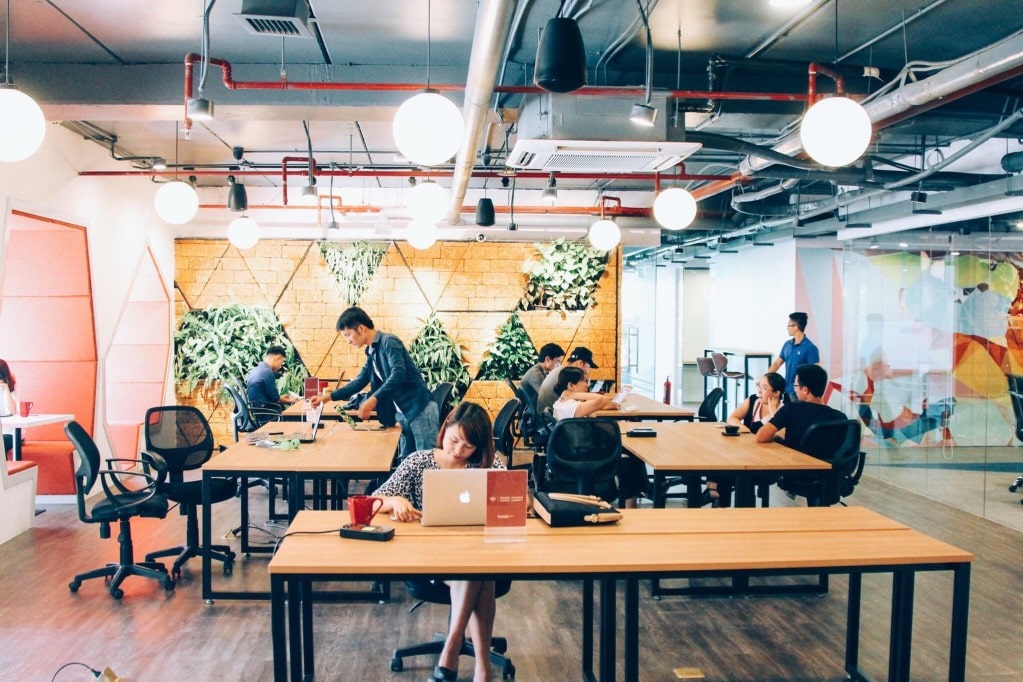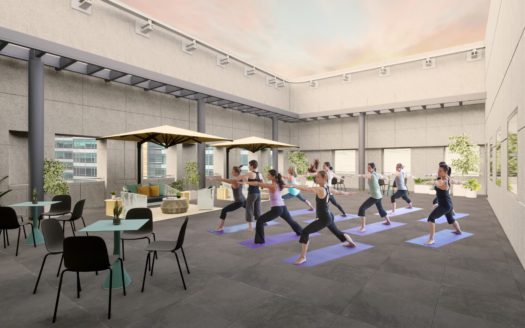2021 Outlook for the Coworking Space Industry in Singapore

As of 2019, Asia Pacific has the most number of coworking spaces in the world, with over 11,000 coworking across countries. Among the many Asia Pacific countries, Australia, New Zealand, Hongkong, and Singapore are leading the coworking market.
With 18% of the world’s coworking spaces, Singapore is identified as the most mature market in Asia for coworking spaces. In fact, Singapore has been at the helm of flexible commercial spaces since 2011. Though coworking spaces originally appealed only to tech startups who could not afford high rental fees in the city, over the years, Singapore’s coworking industry saw the evolution of coworking spaces from economical solutions into thriving communities that now attract individual professionals, entrepreneurs, SMEs, and even multinational companies.
Though private offices and coworking spaces were originally separate businesses, Deskmag reported that in 2019, “coworking spaces with at least 60 per cent of space allocated to private offices worldwide has the highest success rate with 57 per cent of them being profitable”. This shows that coworking and traditional offices were converging in Singapore, producing a work environment with even more flexibility and accommodating even more types of workers.
As of 2019, there were 200 coworking spaces all throughout Singapore. 83% of them are in CBD, 12% are in the City Fringe, while 5% of them are located in the Suburban Areas. These accounted for 3.7 million sq ft in net lettable area of commercial space which is three times their 1.2 million sq ft size in 2015. With such huge growth, Singapore’s coworking industry was set to grow even more competitive in 2020 and the coming years.
Last year, Collier published Workspace Outlook 2019 and their findings on the coworking industry in Singapore showed that coworking spaces occupied 45% of prime grade offices. Of these, three major companies — WeWork, IWG, and JustGroup – held 51% the coworking spaces in the country. With big coworking companies taking up larger shares of the coworking industry, smaller coworking companies are challenged to set themselves apart and still be relevant in order to survive.
Coworking Spaces Adapting to the Changing Business Environment
In the first quarter of 2020, the Singaporean government ordered a nationwide lockdown and forced coworking spaces, alongside other businesses, to close. Some coworking companies struggled with rent as they did their best to provide rebates and relief packages for their tenants. During the lockdown, Singapore’s coworking industry was severely challenged to provide a safe space for workers and companies seeking flexibility.
Given the pandemic, Collier identified that the coworking industry in Singapore will experience half the demand it did compared to last year. Demand for shared spaces is likely to be muted in neighbouring countries as well as Singapore as coworking companies recollect and focus more on adapting to the changing business environment brought by the pandemic.
To cope with these changes, more coworking companies are investing in technology to differentiate their services while occupiers and landlords coordinate to come up with accommodation strategies that would benefit them both. Additionally, coworking spaces are adapting sanitation measures to help prevent the spread of Covid-19. This allowed many of them to begin operations albet space restrictions in the latter half of 2020.

Coworking Post Covid-19
Though Covid-19 challenged coworking as an industry, it did highlight the value of remote work and flexibility. More than ever, Covid-19 made evident the possibility of a remote workforce that delivers their work while enjoying flexibility and freedom. This has brought on a dramatic shift in people’s outlook regarding work and could be a huge advantage for coworking spaces post-Covid-19.
With Covid-10 forcing many people to leave their offices and work from their homes, people experience the benefit of no longer commuting to work and deal with overt office politics, while also experiencing the challenges brought about by blurring the lines between work and other areas of life. As such, it can be expected after Covid-19 that coworking spaces are going to be the central hubs for people who want to enjoy the flexibility of remote work while still maintaining their work-life balance.
From the perspective of employers who experienced a financial blow during Covid-19, it is beneficial to cut down costs wherever possible. As they sent workers home and left their offices empty, it has become more apparent that businesses can run with less space. The need for more affordable workspaces is going to be in demand and this no longer applies to only startups and SMEs; even multinational corporations will greatly benefit from expanding their locations via coworking spaces. They will be less constricted by location when it comes to hiring talent, and they will have more opportunities to tap a wider market by having their employees work remotely and interact with workers from other companies.
Though Covid-19 is still within our midst, the outlook for coworking in Singapore in 2021 and the years to come remains optimistic.
With the new changes implemented by coworking companies, coworking as an industry manages to remain relevant and evolving with the times. With the pandemic, Singapore will see a shift towards more service-oriented and community-centred coworking than simply providing a physical space to get work done. This can be a challenge for smaller coworking companies who struggle to keep up with the changes implemented by larger coworking corporations and have a lot more resources to offer perks and additional services to their tenants.





